Director
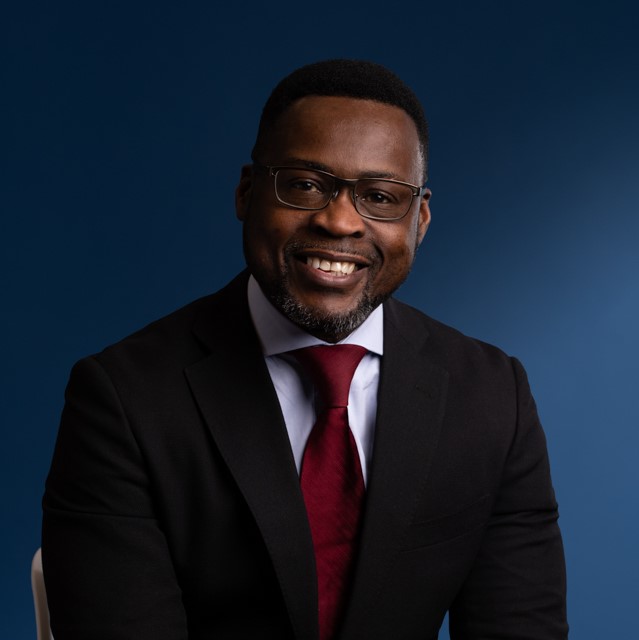
Patrick Drogui
INRS, Centre Eau Terre Environnement
Water treatment, electrotechnologies, membrane technologies, advanced oxidation processes
Proessor Drogui’s research interests focus on the development of new pollutant removal technologies (inorganic and organic). Among these techniques are electrotechnologies, processes that take advantage of electrochemical properties and techniques. These techniques can be used effectively to improve existing municipal and industrial wastewater treatment systems, or to replace conventional, inefficient technologies for the removal of specific inorganic or organic contaminants. The interest of these techniques lies in their non-polluting aspect and their ease of automation. These characteristics are favorable to the development of industrial and urban waste decontamination processes. At present, there are very few single-step processes that can simultaneously remove toxic inorganic and organic pollutants.
Cocandidates

Jean-François Blais
INRS, Centre Eau Terre Environnement
Decontamination of industrial and municipal waste contaminated by toxic metals and organic pollutants
Professor Blais works on the development of treatment, sanitation, decontamination and recovery processes for various types of domestic, urban and industrial waste. More specifically, he works on the development of hydrometallurgical, chemical or biological processes for the decontamination and recovery of matrices contaminated with metals, rare earths and / or toxic organic compounds (e.g. polycyclic aromatic hydrocarbons, dioxins and furans), such as polluted soils, incinerator ash, treated wood waste, waste batteries, electronic waste, mine tailings and various types of industrial waste. He is also working on the development of wastewater treatment and recovery of biomasses adapted to remote areas. In addition, he specializes in the development of computerized models for techno-economic evaluation of developing technologies.
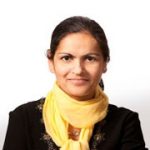
Satinder Kaur Brar
York University
Bioconversion of industrial and municipal organic waste and bioproduct formulation
Professor Brar specializes in research and development in the field of agricultural, municipal and industrial waste treatment and their valorisation in different bioproducts, such as biopesticides, enzymes, biocontrol agents, biofuels (biodiesel and biohydrogen) and platform molecules (ex citric acid, biobutanol) using nanobioprocesses in order to obtain high yield products. She also works in the field of green chemistry to find ecological alternatives to certain synthetic compounds used in the food industry (eg nitrites and nitrates). His areas of expertise include both industrial microbiology and environmental chemistry, bioprocesses and the valorization of sewage sludge in high value-added products, agri-food engineering, the control and elimination of organic pollutants, as well as the development and technology transfer.

Hubert Cabana
Université de Sherbrooke, Génie chimique et génie biotechnologique
Environmental quality, emerging contaminants
Quality of the environment. Emerging pollutants. Micropollutants. Lignivorous fungi. Oxidative enzymes. Enzymatic immobilization. Bioreactors. Odorous compounds

Yves C. Comeau
École Polytechnique de Montréal, Génie Civil, géologique et des mines
Municipal and industrial water treatment
Municipal and industrial wastewater treatment
Removal of phosphorus and nitrogen by biological, physical and chemical processes
Modelization
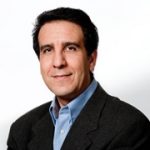
My Ali El Kakhani
INRS, Centre Énergie Matériaux Télécommunications
Plasma / laser processes for the synthesis of nanostructured materials
Professor El Khakani’s research focuses on the study of growth, assembly, and properties of nanostructured materials (including nanotubes, nanoparticles, and ultra-thin layers). He is interested in the development of new processes for the synthesis of these nanomaterials by taking advantage of his expertise in the field of cold plasmas (laser ablation, RF or DC sputtering, PECVD) or by other approaches such as freezing or ion bombardment. Much of its effort is devoted to the study of the properties (electrical, optical, mechanical or catalytic) of these new nanomaterials in order to better understand the inter-relationships between nanostructure-property, on the one hand, and to develop advanced devices in micro / nanoelectronics, photonics and nanotechnology. Much of Professor El Khakani’s research is carried out within the framework of the following structuring consortia: the Canadian Network of Centers of Excellence in Microelectronics (MICRONET), the inter-university network “Nano-Québec” of the MRST and the “Plasma-Québec” strategic cluster of NATEQ.
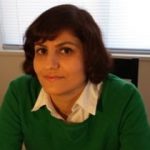
Azadeh Kermanshahi-Pour
Dalhousie University, Process Engineering and Applied Science
Development of wastewater treatment and reuse processes
Professor Kermanshahi-Pour’s research is centered on derivation of bioenergy and value-added chemicals from renewable resources within an integrated biorefinery. Her focus area also extends to the development of green extraction processes using supercritical fluids. Anaerobic digestion, bioremediation and identification of biodegradation pathway of chemicals in the environment are my other area of research interests.
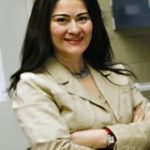
Banu Örmeci
Carleton University, Civil and Environmental Engineering
Development of technologies for the treatment of biosolids and wastewater
Professor örmeci’s research program focuses on wastewater and biosolids treatment, removal of biological and chemical contaminants, development of new, innovative, sustainable and cost-effective treatment technologies, and improvement of treatment processes at treatment plants.
Her research is directly related to the protection of public health and environment, and aims to offer solutions to not only global problems but also to specific issues faced in Canada.
She is currently the Jarislowsky Chair in Water and Health and the Director of the Global Water Institute at Carleton University.
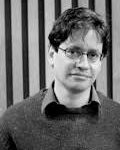
Manuel Rodriguez
Université Laval, École supérieure d’aménagement du territoire et développement régional
Management of the quality of drinking water
Dr. Rodriguez’s research program focuses on the management of drinking water quality, with an integrated watershed approach to the consumer’s tap. He is particularly interested in the generation of knowledge on the spatio-temporal evolution of water quality in supply sources and in distribution networks, and in the development of decision support tools. for the management of drinking water for municipal officials, regulatory agencies and public health officials.
Professor Rodriguez holds the NSERC Industrial Research Chair – Management and Monitoring of Drinking Water Quality at Laval University (CREPUL).
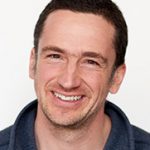
Sébastien Sauvé
Université de Montréal, Chimie
Analytical chemistry, mass spectrometry
The research done in the group of Professor Sauvé is divided into two main axes: on the one hand, he looks at the chemical speciation and the bioavailability of trace elements in soils and water and, on the other hand, studies the future emerging contaminants including several pharmaceuticals in the environment.
The main challenge in the study of contaminated soils is to quantify various multidisciplinary parameters while taking into account the great diversity and heterogeneity of soils. In soils, contaminants have ample opportunity to associate with different solid materials and thus reduce their concentration in the soil solution. This may lead to a decrease in contaminants that could be found in soil leachates, groundwater or that could be picked up by plant roots. A multitude of products are spread in the environment through our way of life and soil remediation is very expensive. It is therefore important to differentiate soils containing levels of contamination and properties that will lead to deleterious effects on human health or the environment, from those where contamination is above the norm, without posing a risk. toxicological. In other words, it’s about assessing bioavailability, i.e., availability to biological organisms.
For pharmaceutical products, its initial efforts are aimed at identifying and quantifying the pharmaceutical products that are most likely to cause environmental problems that are currently being released by wastewater treatment plants.
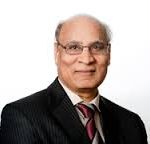
Rajeshwhar D. Tyagi
Bioprocessing, modeling and process control for the treatment and recovery of biomass
The work of Professor Tyagi and his team focuses on the extraction of heavy metals from municipal sludge and industrial waste biologically, the design, analysis and development of bioreactors and the scaling up of industrial microbiological processes. In this context, he is interested in the isolation and characterization of microbial sources for bioconversion and control (applied microbiology). He is also studying mathematical modeling of microbiological processes. Finally, he is concerned with the bioconversion of residues (waste) into high value-added products (biopesticide), industrial enzymes and biocontrol agents.
